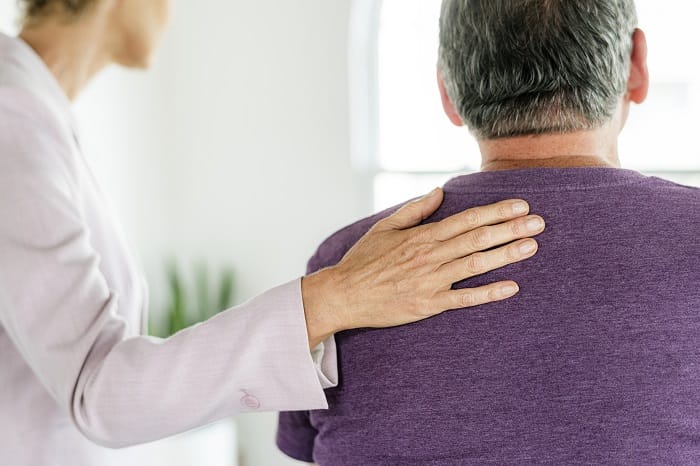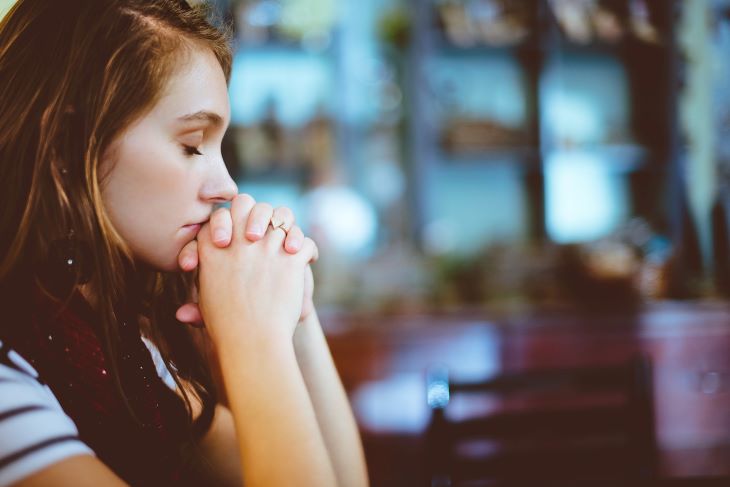You would usually consider a relapse to be a rash decision that happens suddenly.
However, relapse is actually a slow process that develops over a period of time until the person physically relapses. [1]
Understanding what builds up to a relapse and what the warning signs of one are can help you know what to look for and try to prevent it.

A relapse is when you begin using a drug or alcohol after a period of abstaining.
It can happen to anyone with any kind of previous addiction history and it is often experienced at least once while you’re in recovery according to the National Institute on Drug Abuse (NIDA). [2]
If you have been in recovery for a long time, a relapse can be especially dangerous as your tolerance to drug abuse will be particularly low. This means that suddenly taking an amount similar to what you were used to before can be extremely harmful and can result in an overdose or even death.
A risk for relapse is possible no matter how long you have been abstaining from alcohol or drug abuse, so everyone is at risk of relapse. After the relapse has occurred, it can be incredibly difficult to get back on the journey to recovery.
You or your loved one will likely feel a strong urge or craving to continue abusing the drug after the initial physical relapse and it can go on in a vicious cycle unless you seek help from health professionals who can help try to prevent another future relapse.

The development of a relapse generally occurs in three distinct stages, rather than just a singular event. Understanding these stages of a relapse can help to spot a relapse and hopefully stop it in its tracks. [3]
The stages are emotional relapse, mental relapse and physical relapse.
The first stage of relapse is when the person still doesn’t actively have drug cravings or any want to alcohol abuse.
They are still in their recovery process, however, their emotions or behaviours are beginning to worsen which can lead to a mental relapse, and even a physical relapse later on.
The first signs of relapse can be noticed by you or someone you love in an emotional relapse and can include:
In order to prevent staying in the first stage of relapse or continuing to the mental relapse stage, it can be helpful to recognise their behaviour and try to overcome it. [4]
If the person has not made any changes to their lifestyle or behaviour during the first stage, they risk going into the mental relapse stage.
During this second stage, they might be battling with whether they should or shouldn’t start using drugs or alcohol again.
Common warning signs of a mental relapse include:
At this second stage, the person is at high risk of a physical relapse which means having their substance use disorders again. [5]
Engaging with their relapse prevention plan and speaking with a healthcare professional or group at an Alcoholics Anonymous or Narcotics Anonymous meeting would be the best way to return to their previous treatment plan and path to recovery.
A physical relapse is the third and final stage of a relapse and occurs when someone actively starts using drugs or alcohol again.
It is a critical time to reach out for help before an active addiction happens.
If you have relapsed it doesn’t mean you’ve failed sobriety, you just need to engage with coping methods and you may need to go back to rehab if you will require a withdrawal.
If you are concerned that a loved one has slipped back into a full-blown relapse, common signs to look out for are:

There are multiple things or situations that can be triggers for relapse.
One of the most common triggers can be someone’s mental health. Drugs and alcohol can be heavily linked with depression, and someone might feel like using them in order to make themselves feel better.
Stress can also be another trigger for a relapse as you might look to use drugs or alcohol to feel more relaxed. It is important to keep going to therapy, especially if your levels of stress have increased at any point while you’re in recovery.
Exhaustion can trigger a relapse, just as stress and depression can. Difficulty sleeping can often lead to self-neglect, which can make you more likely to use again.
The recovery journey is a long process that needs a focus on general healthy living. If someone is not sticking to their usual daily routines due to exhaustion, they are less likely to employ the relapse prevention techniques they learned in rehab and are more likely to engage in poor self-care.
Feeling isolated can trigger a relapse, highlighting the need to continue support meetings and counselling, as well as being around supportive loved ones.

Relapse rates are high for substance use disorders so it is a common occurrence. However, as it is so common, it does not mean you’ve failed and it does not mean that you can’t continue with your road to recovery.
Recognising a relapse is the most important thing so that you can avoid any serious complications to your health.
Realising what your potential triggers are is crucial and you should talk these signs over with your therapist or within your support group to help reduce the chance of a relapse in the future and a return to a drug addiction or alcohol addiction.
Keeping to a relapse prevention plan is the best way to try to avoid another relapse. While there are no guarantees that a relapse won’t happen again, it will increase the likelihood of a successful long-term recovery. [6]
It could be months of recovery, but the process of recovery is generally a long one.
Rehab 4 Addiction is here to help if you require any further information and support.
Call us today at 0800 140 4690.
[1] https://pubmed.ncbi.nlm.nih.gov/18535026/
[2] https://pubmed.ncbi.nlm.nih.gov/16163517/
[3] https://www.ncbi.nlm.nih.gov/books/NBK551500/
[4] https://pubmed.ncbi.nlm.nih.gov/23327504/